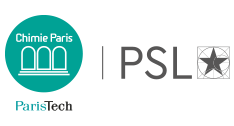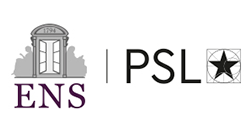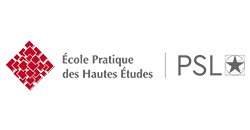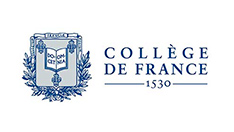Post-doctoral research assistant for VLTI/GRAVITY (F/M)

Working environment and context
Our institution is part of PSL University. Located in the heart of Paris, it brings together all areas of knowledge, innovation and creation. Ranked among the top 50 universities in the world, it trains researchers, artists, engineers, entrepreneurs and managers who are aware of their social, individual and collective responsibility in the field of research.
Hosting structure
L’Observatoire de Paris-PSL est un établissement public à caractère scientifique, culturel et professionnel, disposant du statut particulier de Grand Etablissement.
Ses missions sont orientées principalement vers la recherche, la formation et la diffusion des savoirs dans les disciplines liées aux sciences de l’univers et à l’astronomie. Fort de son expertise, l’Observatoire de Paris-PSL collabore avec les acteurs principaux de l’astronomie à l’échelle internationale.
Mission
Applications featuring experience in data modeling, model fitting and/or Bayesian inference are solicited for a post-doctoral fellowship at Paris Observatory/LESIA in collaboration with the GRAVITY+ consortium. The post-doctoral research assistant (PDRA) will lead the LESIA Galactic Centers (GCs) team's effort for systematic data analysis of VLTI/GRAVITY data concerning the Milky Way Galactic Center supermassive black hole Sgr A* and its surroundings. To this effect, the PDRA will use preexisting data reduction and interpretation codes. They will extend these codes with support for systematic effects, known or to be discovered thanks to GRAVITY+. Eventually, they will be responsible for the publication of those codes as free software with their co-authors. They will be a member of the consortium and participate in GRAVITY+ science. The successful candidate will be appointed initially for two years, with possibility for a third year on the basis of satisfactory performance. Post-doctoral positions in France give access to full health insurance. The preferred starting date is September 1st, 2024. Paris Observatory-PSL is one of the largest astronomical centers in the world with 650 permanent staff out of a total of 1000 personnel, hosting LESIA (the Laboratory for Space Studies and Instrumentation in Astronomy, member of the GRAVITY/GRAVITY+ consortium). GRAVITY and the VLT Interferometer (VLTI) have transformed optical interferometry with groundbreaking results on the Galactic Center, active galactic nuclei, and exoplanets. Through its upgrades – off-axis fringe-tracking, extreme adaptive optics (AO) and laser guide stars for the four 8-m unit telescopes (UTs) – GRAVITY+ will open up the extragalactic sky for milli-arcsec resolution interferometric imaging, and give access to targets as faint as K = 22 mag. GRAVITY+ will measure the black hole masses of active galactic nuclei across cosmic time, and obtain high quality exoplanet spectra and orbits. The GCs team at LESIA is part of the GRAVITY project since its origins in 2005, participating in the construction of the instrument and in its exploitation, especially concerning the Milky Way Galactic Center. GRAVITY was put in operation in 2017 on the Very Large Telescope Interferometer (VLTI) in Chile, with the primary goal of testing general relativity (GR) around the supermassive compact object Sgr A*. These works constitute one of the most solid proofs that black holes do exist and behave according to GR, and are a corner stone of the 2020 Nobel Prize for Physics. With GRAVITY+, the consortium is now aiming for a measurement of the spin of the black hole within the next one or two decades, paving the way for testing the no-hair theorem that states that the metric around an astrophysical black hole in GR is entirely determined by its mass and spin. The project is part of a consortium effort. Publications including GRAVITY data are subject to the consortium publication policy.
Several partners of the consortium (including our team) participate in this effort by independently reducing and analyzing data which are produced by observing runs every month from March to September to measure the position of Sgr A* and several nearby stars as they move from night to night and even through the night. Those positions are then used to fit orbital models that include a variety of GR effects. To this end, our team has developed GRAFITY, a set of Python codes to perform those tasks and of scripts to automate them on computing clusters. However, the effects that we are now trying to measure are extremely subtle and require additional instrumental and statistical effects to be taken into account. The role of the PDRA will be to 1- include all these effects in the GRAFITY framework; 2- re-reduce all the archival and incoming data in a systematic and coherent manner, including covariance in the statistical estimators; 3- detect additional stars in the data, if possible also in archival data; 4- react promptly to the inflow of data by immediately performing data reduction, analysis and interpretation; 5- ensure the publication of the GRAFITY codes as free software. The PDRA is also expected to participate in observing runs on the VLTI in Chile.
PAUMARD Thibaut thibaut.paumard@observatoiredeparis.psl.eu 0145077835Informations - Recherche
Skills
The tasks expected from the PDRA will necessitate the following skills, part of which may be acquired during the contract :
- Data modeling
- Astrophysical modeling
- Task automation and parallelization
- Python programming
- Bayesian statistics
- Observing on large telescopes.
Non discrimination, openness and transparency
Our institution, like PSL University as a whole, is committed to supporting and promoting equality, diversity and inclusion within its communities. We encourage applications from a variety of backgrounds, which we will ensure are selected through an open and transparent recruitment process.
Contact
kkuj3pp8uz5k@emploi.beetween.com
Other information
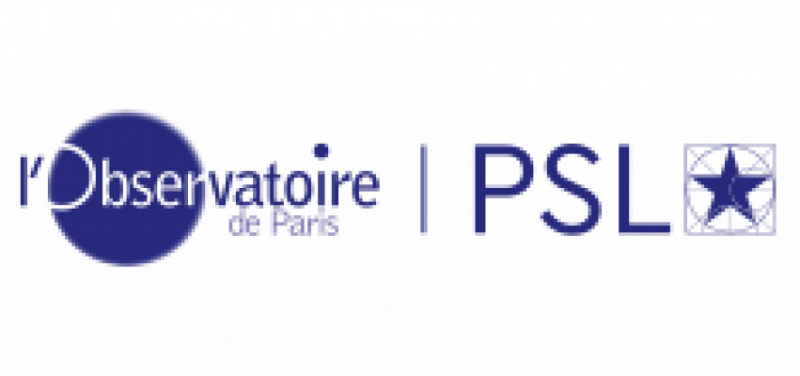
Post-doctoral research assistant for VLTI/GRAVITY (F/H)
| Location 92190 Meudon 92190 |
|---|
| School Observatoire de Paris - PSL |
Working environment and context
Notre établissement fait partie de l'Université PSL. Située au cœur de Paris, celle-ci fait dialoguer tous les domaines du savoir, de l'innovation et de la création. Classée parmi les 50 premières universités mondiales, elle forme au plus près de la recherche des chercheurs, artistes, ingénieurs, entrepreneurs ou dirigeants conscients de leur responsabilité sociale, individuelle et collective.
Hosting structure
L’Observatoire de Paris-PSL est un établissement public à caractère scientifique, culturel et professionnel, disposant du statut particulier de Grand Etablissement.
Ses missions sont orientées principalement vers la recherche, la formation et la diffusion des savoirs dans les disciplines liées aux sciences de l’univers et à l’astronomie. Fort de son expertise, l’Observatoire de Paris-PSL collabore avec les acteurs principaux de l’astronomie à l’échelle internationale.
Teaching mission
Applications featuring experience in data modeling, model fitting and/or Bayesian inference are solicited for a post-doctoral fellowship at Paris Observatory/LESIA in collaboration with the GRAVITY+ consortium. The post-doctoral research assistant (PDRA) will lead the LESIA Galactic Centers (GCs) team's effort for systematic data analysis of VLTI/GRAVITY data concerning the Milky Way Galactic Center supermassive black hole Sgr A* and its surroundings. To this effect, the PDRA will use preexisting data reduction and interpretation codes. They will extend these codes with support for systematic effects, known or to be discovered thanks to GRAVITY+. Eventually, they will be responsible for the publication of those codes as free software with their co-authors. They will be a member of the consortium and participate in GRAVITY+ science. The successful candidate will be appointed initially for two years, with possibility for a third year on the basis of satisfactory performance. Post-doctoral positions in France give access to full health insurance. The preferred starting date is September 1st, 2024. Paris Observatory-PSL is one of the largest astronomical centers in the world with 650 permanent staff out of a total of 1000 personnel, hosting LESIA (the Laboratory for Space Studies and Instrumentation in Astronomy, member of the GRAVITY/GRAVITY+ consortium). GRAVITY and the VLT Interferometer (VLTI) have transformed optical interferometry with groundbreaking results on the Galactic Center, active galactic nuclei, and exoplanets. Through its upgrades – off-axis fringe-tracking, extreme adaptive optics (AO) and laser guide stars for the four 8-m unit telescopes (UTs) – GRAVITY+ will open up the extragalactic sky for milli-arcsec resolution interferometric imaging, and give access to targets as faint as K = 22 mag. GRAVITY+ will measure the black hole masses of active galactic nuclei across cosmic time, and obtain high quality exoplanet spectra and orbits. The GCs team at LESIA is part of the GRAVITY project since its origins in 2005, participating in the construction of the instrument and in its exploitation, especially concerning the Milky Way Galactic Center. GRAVITY was put in operation in 2017 on the Very Large Telescope Interferometer (VLTI) in Chile, with the primary goal of testing general relativity (GR) around the supermassive compact object Sgr A*. These works constitute one of the most solid proofs that black holes do exist and behave according to GR, and are a corner stone of the 2020 Nobel Prize for Physics. With GRAVITY+, the consortium is now aiming for a measurement of the spin of the black hole within the next one or two decades, paving the way for testing the no-hair theorem that states that the metric around an astrophysical black hole in GR is entirely determined by its mass and spin. The project is part of a consortium effort. Publications including GRAVITY data are subject to the consortium publication policy.
Several partners of the consortium (including our team) participate in this effort by independently reducing and analyzing data which are produced by observing runs every month from March to September to measure the position of Sgr A* and several nearby stars as they move from night to night and even through the night. Those positions are then used to fit orbital models that include a variety of GR effects. To this end, our team has developed GRAFITY, a set of Python codes to perform those tasks and of scripts to automate them on computing clusters. However, the effects that we are now trying to measure are extremely subtle and require additional instrumental and statistical effects to be taken into account. The role of the PDRA will be to 1- include all these effects in the GRAFITY framework; 2- re-reduce all the archival and incoming data in a systematic and coherent manner, including covariance in the statistical estimators; 3- detect additional stars in the data, if possible also in archival data; 4- react promptly to the inflow of data by immediately performing data reduction, analysis and interpretation; 5- ensure the publication of the GRAFITY codes as free software. The PDRA is also expected to participate in observing runs on the VLTI in Chile.
PAUMARD Thibaut thibaut.paumard@observatoiredeparis.psl.eu 0145077835Research mission
Skills
The tasks expected from the PDRA will necessitate the following skills, part of which may be acquired during the contract :
- Data modeling
- Astrophysical modeling
- Task automation and parallelization
- Python programming
- Bayesian statistics
- Observing on large telescopes.
Non discrimination, ouverture et transparence
Notre établissement, comme l'ensemble de l'Université PSL, s’engage à soutenir et promouvoir l’égalité, la diversité et l’inclusion au sein de ses communautés. Nous encourageons les candidatures issues de profils variés, que nous veillerons à sélectionner via un processus de recrutement ouvert et transparent.
Contact
kkuj3pp8uz5k@emploi.beetween.com
Other information
| Experience years
Niveau doctorant (R1) an |
Reference kkuj3pp8uz |
|---|
Université PSL (Paris Sciences & Lettres)


